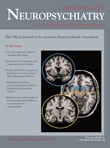Acute Hypertensive Crisis May Be a Risk Factor for Alzheimer’s Disease Induction and Progression
SIR: Epidemiological studies have shown that Alzheimer disease is a preventable disease and protective strategies relating to dietary supplements, life style, avoiding environmental toxins, and in some cases medication, have the capacity to reduce Alzheimer’s risk by 50% or more. 1 Increasing evidence show that reactive oxygen species production, which is one of the main causes of neurodegenerative diseases as Alzheimer, is increased in patients with hypertension. 2 , 3
The role of hypertension in Alzheimer disease has been studied, 4 but the effect of hypertensive crises has not yet been clearly demonstrated.
Poulet et al. 5 have explored the effect of acute-induced hypertensive conditions on cerebral oxidative stress using a mouse model of transverse aortic coarctation between the two carotid arteries, which acutely imposes a dramatic increase in blood pressure on the right brain hemisphere. The results show that hypertension acutely induced by aortic coarctation induces a breaking of the blood-brain barrier and reactive astrocytosis through hyperperfusion, and evokes trigger factors of neurodegeneration such as oxidative stress and inflammation.
We propose that acute hypertensive states including pheochromocytoma and acute postoperative hypertension may be risk factors for induction and progression of Alzheimer disease. Surely this opinion needs to be examined in clinical trials.
1 . Jansson ET: Alzheimer disease is substantially preventable in the United States—review of risk factors, therapy, and the prospects for an expert software system Med Hypotheses 2005; 64:960–967Google Scholar
2 . Touyz RM: Reactive oxygen species, vascular oxidative stress, and redox signaling in hypertension: what is the clinical significance? Hypertension 2004; 44:248–252Google Scholar
3 . Harman D: Alzheimer’s disease pathogenesis: role of aging. Ann N Y Acad Sci 2006;1067:454–460Google Scholar
4 . Heijer T, Skoog I, Oudkerk M, et al: Association between blood pressure levels over time and brain atrophy in the elderly. Neurobiol Aging 2002; 24:307–313Google Scholar
5 . Poulet R, Gentile MT, Vecchione C, et al: Acute hypertension induces oxidative stress in brain tissues. J Cereb Blood Flow Metab 2006; 26:253–262Google Scholar



